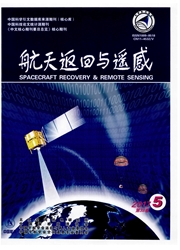

 中文摘要:
中文摘要:
导航作为航天器核心技术之一,是确保航天任务成败的关键。天文导航以其连续性好、自主性强、实时性优、导航精度高等优点,逐渐成为航天器导航的有效手段。基于国内外天文导航理论及应用的现状,结合近地卫星、深空探测任务特点,探讨了天文导航在航天工程应用中的理论问题与技术问题,如导航目标源观测量精确建模问题、高精度感知与检测问题等,并对新型天文导航技术进行了展望,指出了未来天文导航理论与技术的发展方向,为解决航天工程中的连续自主、实时高精度导航问题提供了有效途径,为学术与工程界进一步深入开展航天器天文导航理论与技术研究提供参考。
 英文摘要:
英文摘要:
As one of the core technologies of spacecraft, navigation is critical to guarantee the success of space missions. Celestial navigation has gradually become an effective method for spacecraft, which has the advantage of continuity, autonomy, real-time, and high-precision. Based on the theory and application of celestial navigation at present, combined with specifications of near-Earth satellites and deep space probes, the theoretical and technical problems in space engineering are discussed, for example, that of accurate modeling of navigation source, that of perception and detection of high accuracy, etc. Perspective and development direction of new celestial navigation technology in future are proposed, which provides an effective way to realize celestial navigation of continuity, autonomy, real-time, and high-precision in space engineering, and valid reference to research on theory and technology of celestial navigation in depth for academia and engineering.
 同期刊论文项目
同期刊论文项目
 同项目期刊论文
同项目期刊论文
 期刊信息
期刊信息
